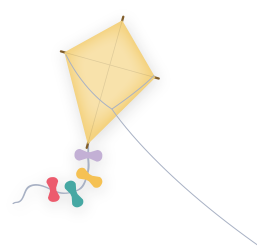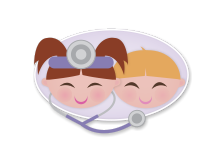










175 Nate Whipple Highway Suite 102 Cumberland RI 02864 • 401.334.KIDS Home | About Us | Our Staff | Services | Wellness | Illness | Parents
Like us on facebook.

NUTRITION is a major component of our CHILDREN’S AND FAMILY’S HEALTH. Due to increased rates of food allergies and obesity we have become even more concerned with ways to introduce healthy nutrition to our children. By EATING HEALTHY AS A FAMILY (limiting junk food and “fast food” consumption) we can be role models to our children and prevent long term health complications. Nutrition advice can be broken down into different age groups:
NEWBORNS: Whether you decide to breastfeed or formula feed your child it is important to start to follow “hunger cues” as early as possible.
INFANTS: Introduction of solids can occur anywhere between the window of 4-6 months depending on your preference and your child’s “readiness.” Solids should always be introduced with a spoon. When introducing solid foods it is important to start slowly with one new food introduced every 3-4 days in order to monitor for food allergies. Simple purees of fruits and vegetables and cereals are what are recommended. See the following table for some recommendations on how to start solids.
9 MONTHS: Close to the age of 9 months, once your child is able to sit well and pick up small pieces of food they may be ready for table foods. Start slow and keep food items small and soft so they do not pose a choking risk. More protein rich foods (eggs, meats, yogurt and cheese) may also be introduced at this time.
TODDLER: After the age of 1 year your child may be ready to eat more table foods. We recommend early bottle weaning and transition to a sippy cup. At this time your child will also be ready for cow’s milk (barring any cow’s milk allergies). Encouragement of table foods, using a spoon and limiting milk intake to 16 oz per day is what is recommended. Your toddler should be eating 3 meals a day and a morning and afternoon healthy snack may be included.
SCHOOL AGE: For school aged children it is important to incorporate a variety of fruits and vegetables as well as adequate calcium sources for growth. A healthy breakfast is an important part of every day. We encourage all children to “strive for five” servings of fruits and vegetables daily. Picky eaters may benefit from a multivitamin daily. Water and milk are the beverages of choice.
TEENS AND YOUNG ADULTS: It is important to encourage healthy habits and to limit “fast food” and junk food as much as possible. Teens should be getting a healthy breakfast and at least 4 servings of a calcium rich food daily. Limiting consumption of sugar containing beverages (soda, soft drinks) will also allow for healthier calorie intake.
EXERCISE:
As part of keeping your child healthy we recommend daily exercise for at least 60 MINUTES A DAY. Exercise can be described as anything your child likes to do that gets their heart rate up and allows them to be ACTIVE. Healthy habits start early! A family that stays active together will encourage physical activity for a lifetime. As per the AAP guidelines we recommend limitations on screentime: “children and teens should engage with entertainment media for no more than one to two hours per day, and that should be high-quality content. “ Instead it is important for kids to spend time outdoors, develop hobbies, read and participate in other activities.
The information presented in this section is not intended to take the place of your personal physician’s advice or diagnose, treat, cure or prevent any disease. Information is intended for your general knowledge only














